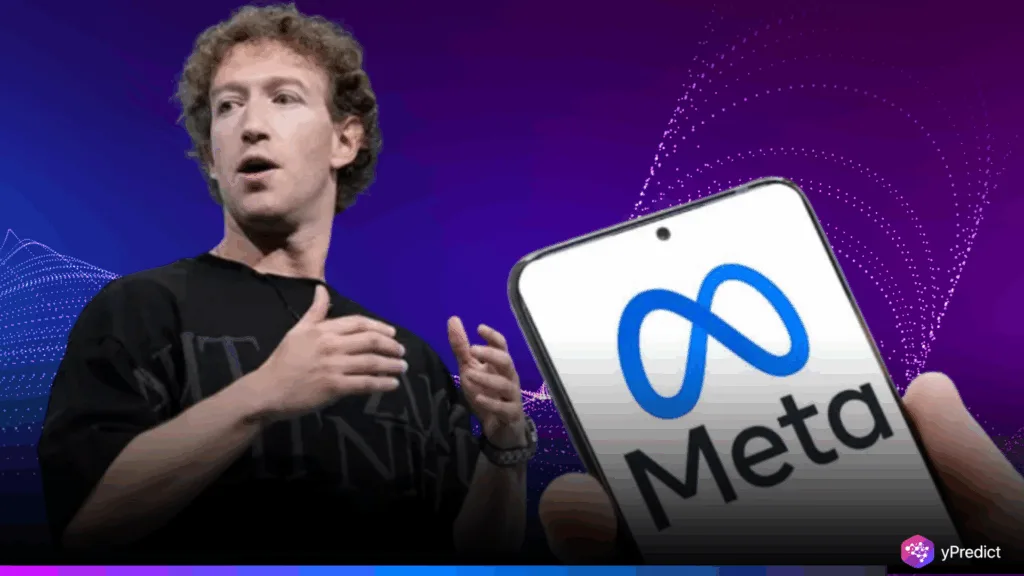
Mark Zuckerberg is making a risky gamble on the future of artificial intelligence by offering unprecedented access to computing resources for researchers. Breakthroughs depend on enormous resources in the AI race, and Meta is positioning itself in this spot as the partner for scientists trying to build models that change the world.
This move puts Meta directly into the spotlight of global AI development. With billions invested in powerful chip arrays and infrastructure, the company wants to push beyond today’s limits and become the launchpad for the first leap into AI superintelligence. The offer isn’t just about hardware; it’s about securing Meta’s future as a central player in shaping what comes next.
Meta’s Grand Offer to the AI Community
Meta is opening its doors to outside AI researchers, giving them access to compute clusters packed with advanced chips. These chips, the engines of modern AI, allow scientists to train complex large language models faster and more efficiently than ever before. For researchers, this access means a real shot at building something that could rival or surpass the most advanced models currently in existence.
This strategy reflects Meta’s ambition to take the lead in AI superintelligence, the concept of AI systems outperforming humans in most economically valuable work. While other tech giants focus on commercial applications, Meta is betting on open science and shared research to unlock the future.
Superintelligence Is a Race, And Compute Is the Fuel
To build truly transformative AI, research teams need more than smart algorithms. They need access to computing power, lots of it. Meta’s chip arrays offer exactly that, removing one of the biggest hurdles for teams aiming to scale up.
A team mobilizes, trains, evaluates, and improves models at an incredible speed. And whoever gets to the perimeter or surpasses the human performance criteria first could change industries, governments, and life as we know it today in ways we can’t even begin to understand.
By providing these resources, Meta is building a pipeline of innovation that flows back into its ecosystem. Researchers access compute, while Meta learns from every project and discovery.
A Strategic Power Move in the AI Landscape
Meta’s generosity is not just goodwill; it’s a strategic play. By supporting independent and academic researchers, Zuckerberg is building a powerful alliance. These partnerships could allow Meta to influence standards, drive open research and compete against more closed models like those from OpenAI or Google DeepMind.
It also means Meta can spot and integrate new developments quickly. As scientists build with Meta’s support, the company stays on the cutting edge without having to develop everything internally.
In return, researchers gain access to world-class infrastructure without having to join a tech company full-time. This approach could redefine how innovation spreads in the AI world.
The Importance of Meta AI Chips in This Revolution
At the heart of this offer are the Meta AI chips that drive the computing clusters. Designed to handle large-scale model training, these chips are optimized for efficiency and scale. Meta’s custom silicon efforts are quietly becoming a serious competitor to Nvidia’s dominance in the field.
These chips offer high throughput, lower power usage, and better cost-effectiveness over time. For scientists who want to build next-gen models, this means fewer bottlenecks and faster turnaround.
By betting on hardware innovation alongside software, Meta ensures it doesn’t just host the AI future , it helps build it from the ground up.
What This Means for the Future of AI Research
Meta’s move is likely to accelerate global progress toward AI superintelligence. Teams with bold ideas but limited resources now have a path forward. This shift could democratize breakthroughs, reduce dependence on elite tech labs, and bring more global voices into the AI conversation.
However, it also raises questions. Who controls the outcomes of this research? Can Meta stay true to its open-access vision? And how will governments respond as one private company grows its influence over one of the century’s most powerful technologies?
For now, researchers are lining up to take advantage of the opportunity. If even one of them cracks the code to superintelligence using Meta’s support, Zuckerberg’s gamble will have paid off in historic proportions.






